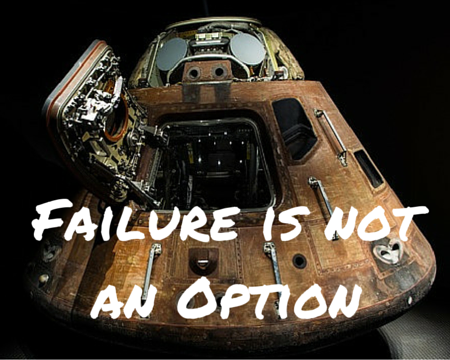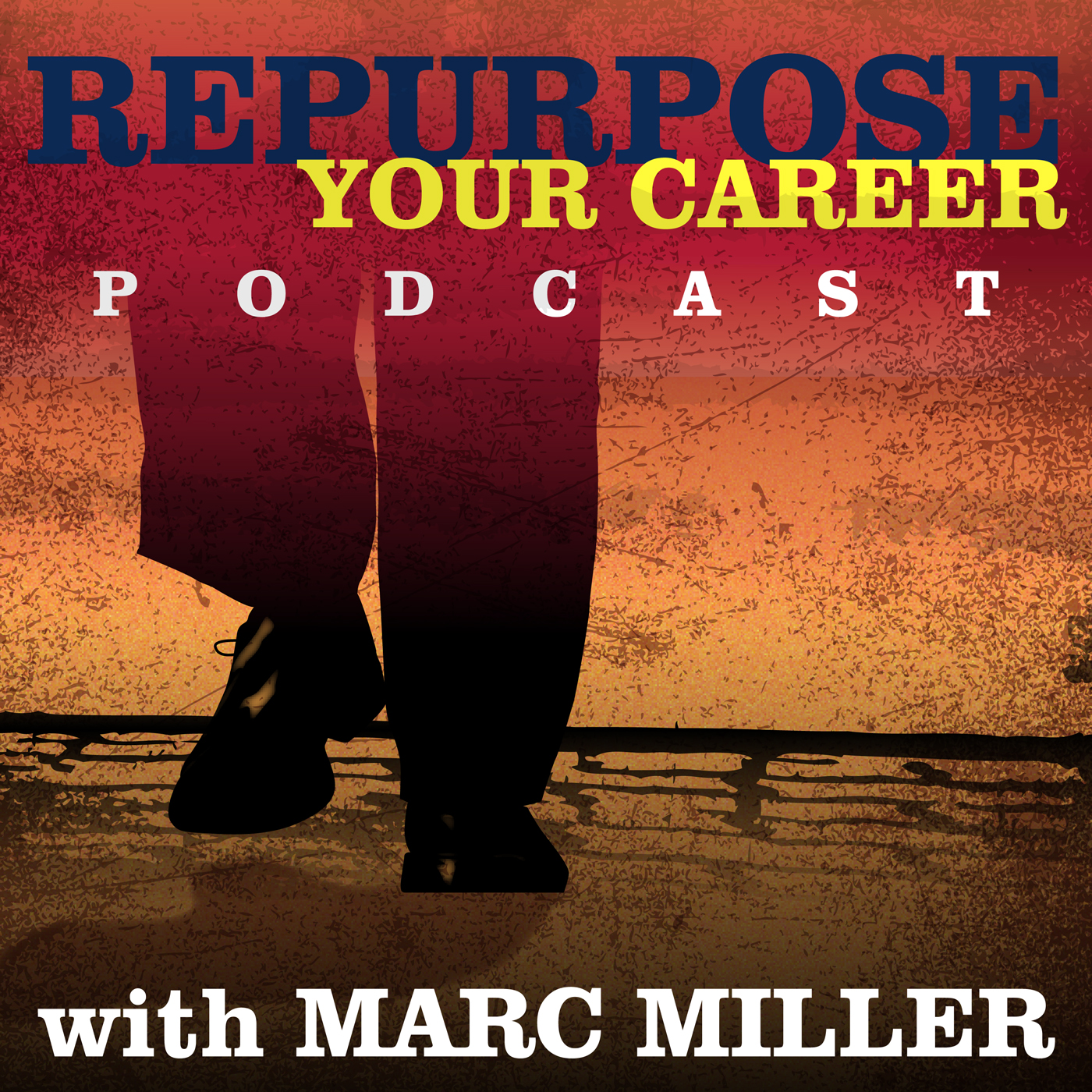Failure Is Not an Option is Total BS
 Those of us who grew up during the race for space are familiar with the phrase, “failure is not an option.” Gene Kranz wrote the book Failure Is Not an Option: Mission Control From Mercury to Apollo 13 and Beyond. The phrase was immortalized in the movie Apollo 13.
Those of us who grew up during the race for space are familiar with the phrase, “failure is not an option.” Gene Kranz wrote the book Failure Is Not an Option: Mission Control From Mercury to Apollo 13 and Beyond. The phrase was immortalized in the movie Apollo 13.
It was ingrained in our entire generation that failure is completely unacceptable.
This belief gets many of us into trouble in our careers. We hang on for too long to failing jobs, careers, or businesses.
I am going to tell you that, in today’s world, this is total BS!
Failure is an option?
I recently wrote two posts about my career failures:
I learned from all of these experiences. In fact, I learned more from these three experiences than any other within my career. What I learned was that, if I was going to fail, I should fail fast.
This is totally counter to the way we were raised. We were raised that failure is unacceptable. We were raised to persevere. If you failed, you were simply not trying hard enough.
We were raised during a time where the upfront investment to start a business was huge. Most people would need to get a significant loan to get started. If you were to fail, the financial and personal consequences would be very big. That is why most of us became employees.
I was raised to be an employee and to go to work for a father-like company that would take care of me.
Therefore, when I graduated from college with my engineering degree from Northwestern, I went to work for IBM.
It was all about mitigating risk in my career.
Now, it is about mitigating risk if you should fail. What I have learned is that failure is an option as long as you fail fast, limit your losses, and learn from each experience.
Barriers to Entry Have Disappeared
One big change is that the barriers to entry to start a new business have been reduced significantly. I have:
- Published two books without a publisher, and successfully sold a couple of thousand copies.
- Created a website and blog which garners over 10,000 visitors a month without a major capital investment.
- Created a highly recognizable brand—Career Pivot.
All of this was done with very small financial investment, but with a lot of sweat equity.
I belong to several technology meetups where new companies are rapidly formed. They develop a plan to create an app. They sign up for Amazon Web Services, rent space at a co-working facility, and start developing the product. Total investment? Less than $10K. Ten years ago, the initial investment was probably closer to $1M or more.
This is a totally different mindset than how most of us were raised.
I had a discussion with a FranNet consultant a couple of years ago. He told me about the people he met in 2002-2004 who had been laid off after the dot-com bubble had burst. Many of them had a lot of money in retirement accounts. He told them never to put more than 10% of their net worth into a franchise. They could afford to take the risk but were terrified of failing. They were still too risk averse to take the chance.
I want you to go back to the 1960s. If you were unemployed back then and did not find a job quickly, there was something wrong with you. Today, a massive percentage of the population has been touched by unemployment over the last fifteen years. Being unemployed is no longer a red flag on your record.
In Silicon Valley, failure is a badge of honor. Check out this article in Inc. Magazine: Why Silicon Valley Loves Failure. If that does not change your perspective, well…
Lessons Learned
Here are some things I learned from my career failures:
- Always have a plan B. Be prepared! Should you fail, you will have a fallback strategy.
- If you are going to fail, fail fast. Do not hang on just because you can.
- Learn from every experience. Failure is only bad if you do not learn from the experience.
In today’s world of low barriers of entry, “failure is not an option” is total BS!
Am I full of it?
If you think so, tell me why in the comment box below.
What have you got to lose? Remember failure is an option as long as you fail fast, limit your losses, and learn from each experience.
Marc MillerLike What Your Read? Get Career Pivot Insights
Do You Need Help With ...

Check out our Help Center where you have access to 14 different content portals.



Thank you for this article. I fight this in my office on a daily basis as our SVP that we report to thinks any failures are a sign of weakness, incompetence or laziness. I think it’s making a toxic work environment as people are afraid to think creatively and we keep doing the same old thing. Business is good right now but eventually we are going to get pushed out by the newer, shinier if we don’t take chances with innovation.
Pixie,
The challenge is this is very cultural. If no one is making mistakes or failing, then no one is taking any risks. That is dangerous because you will be left behind in this rapidly changing world.